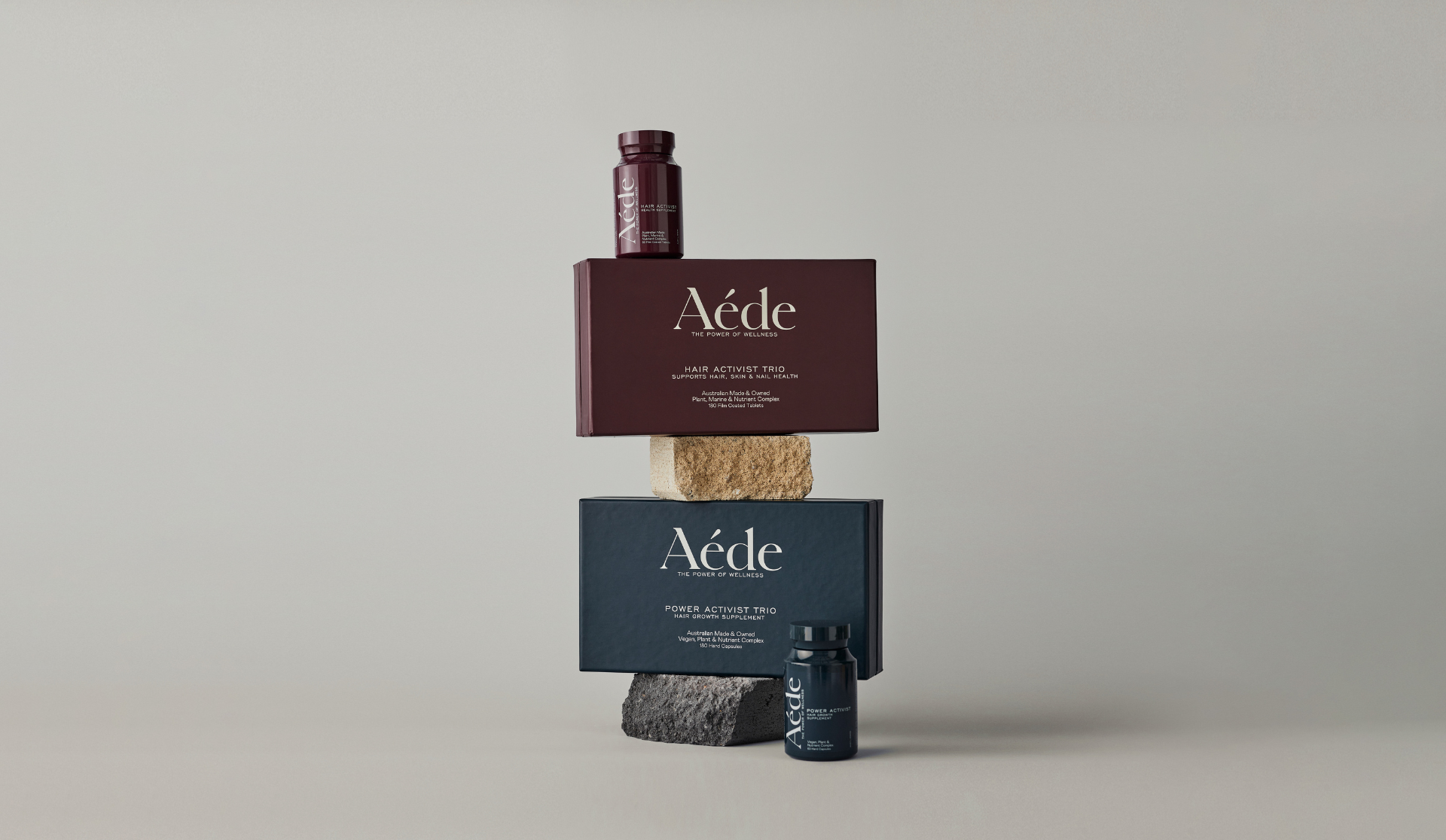Your hair, that glorious crown atop your head, is like a bustling metropolis with its own unique rhythm. Nestled within this vibrant landscape lies the delicate dance between the anagen and telogen phases – the bustling rush hour of growth and the leisurely Sunday stroll of rest.
Let us talk nerdy to you.
The hair cycle is composed of four primary phases: anagen, catagen, telogen, and exogen. Anagen is the active growth phase of the hair follicle, during which the hair shaft elongates, this phase typically lasts for several years and determines the length of our hair. Whereas catagen and telogen describe regression and the resting phase of the follicle, in layman’s terms the hair follicle is inactive, ultimately resulting in hair shedding.
While 9% of hair follicles reside in telogen at any time, a variety of factors promote the anagen to telogen transition, including inflammation, hormones, stress, nutritional deficiency, poor sleep quality, and cellular division inhibiting medication. Conversely, increased blood flow, direct stimulation of the hair follicle, and growth factors promote telogen to anagen transition and subsequent hair growth.
It’s all about the ratio between these two, if they are at odds, you can expect to see more hair on your brush than on your head - we’re already feeling the anxiety.
This ratio gives insight into the overall health of the hair follicles and the rate of hair growth. A higher anagen to telogen ratio indicates a higher proportion of hair follicles in the active growth phase, which typically corresponds to healthier, thicker hair and faster growth. Conversely, a lower ratio suggests more follicles in the resting phase, which may indicate hair thinning or hair loss issues.
The factors that might be influencing your hair growth cycle:
INFLAMMATION
Inflammation inflicts a variety of hair loss subtypes, including stress-induced hair loss, alopecia areata (AA), and male- and female-pattern hair loss, also known as androgenic alopecia (AnA).
HORMONAL IMBALANCES
Hormones are like the unruly teenagers of the body and when they wreak havoc, this impacts the hair cycle and mediates hair growth. This includes your thyroid hormones, dihydrotestosterone (DHT), oestrogen and testosterone. Hormonal fluctuations can shorten the anagen phase and prolong the telogen phase, leading to increased hair loss.
STRESS
Stress, the silent saboteur lurking in the shadows, ready to pounce on our unsuspecting strands. High cortisol levels are the main offender and can throw our hair growth cycle into disarray, sending follicles into early retirement. Stress less, please.
NUTRITIONAL DEFICIENCIES
Ah the eternal struggle between a salad and a pizza—both vying for control of our hair's fate. A balanced diet filled to the brim with nutrients is what our follicles deserve, too much junk food can leave our strands looking more frazzled than fab. Adequate nutrition is essential for maintaining healthy hair growth. Deficiencies in vitamins, minerals, and proteins i.e. riboflavin, biotin, silicon, selenium, and zinc can disrupt the hair growth cycle, leading to a shorter anagen phase and increased hair loss.
ENVIRONMENTAL FACTORS
Exposure to environmental stressors such as pollution, UV radiation, and harsh chemicals can damage the hair follicles and accelerate the transition to the telogen phase. Protecting the hair and scalp from these external factors is crucial for maintaining a healthy anagen to telogen ratio.
Achieving and maintaining a balanced anagen to telogen ratio is essential for promoting healthy hair growth and minimising hair loss. So, let's kick back some Power Activist or Hair Activist, throw in a dash of meditation to keep cortisol at bay, and slap on a metaphorical hard hat to shield those precious locks from environmental chaos. With these small yet mighty lifestyle changes, you'll be the reigning champion of hair health and vitality in no time.
Who knew hair care could be so damn empowering.


